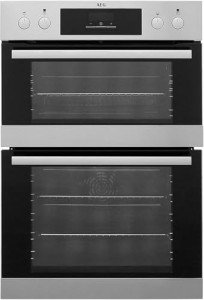Why You Should Not Think About Enhancing Your Intergrated Oven

Understanding Integrated Ovens: A Comprehensive Guide
In the world of culinary innovation, integrated ovens have actually become a popular home appliance that combines functionality, benefit, and design. As home cooking evolves, incorporating high-tech options into kitchens has ended up being increasingly desirable. This short article looks into what integrated ovens are, their features, advantages, and comparisons to conventional ovens.
What is an Integrated Oven?
An integrated oven is a built-in kitchen device designed to fit effortlessly within kitchen cabinetry. Unlike freestanding ovens, which inhabit flooring space and are typically large, integrated ovens are designed to be hidden behind kitchen doors, developing a structured look. These ovens are typically part of a total kitchen suite and can include choices like convection, steam, and mix ovens, providing versatility for various cooking needs.
Key Features of Integrated Ovens
- Space-saving Design: Integrated ovens inhabit less square video while providing ample cooking space, making them perfect for small kitchens.
- Aesthetic Appeal: They blend harmoniously with cabinets, adding to a cohesive kitchen design.
- Multiple Cooking Functions: Many integrated ovens come with different cooking modes, consisting of baking, barbecuing, steaming, and more, dealing with varied culinary strategies.
- Smart Technology: Features like touchscreens, Wi-Fi connectivity, and programmable settings enhance user benefit and accuracy.
- Energy Efficiency: Many integrated ovens are designed to use energy more efficiently than traditional ovens, decreasing electrical power consumption and cooking times.
Kinds Of Integrated Ovens
Integrated ovens can be found in numerous types, each created to match various cooking designs and preferences:
- Single Ovens: The most common type for daily cooking and baking.
- Double Ovens: Suitable for jobs needing synchronised cooking at different temperature levels.
- Steam Ovens: Ideal for health-conscious cooking, protecting nutrients while guaranteeing wetness.
- Microwave Ovens: Often integrated with other ovens for adaptability and fast cooking.
- Combi Ovens: Hybrid units that combine conventional and steam cooking, supplying an exceptional all-in-one service.
Benefits of Integrated Ovens
The advantages of integrated ovens extend well beyond their contemporary aesthetics. Here are some notable benefits:
- Enhanced Kitchen Design: They offer a sleek, contemporary look that enhances the overall kitchen visual.
- Improved Functionality: The variety of cooking approaches and functions deals with versatile culinary needs.
- Increased Value: Integrated appliances can increase home worth, making homes more attractive to potential purchasers.
- Ease of Use: Intuitive controls and features streamline the cooking procedure, permitting greater culinary exploration.
- Security Features: Many integrated ovens include extra safety features to prevent accidents, particularly important in household homes.
Comparison Table of Integrated Ovens vs. Traditional Ovens
| Function | Integrated Ovens | Standard Ovens |
|---|---|---|
| Design | Built-in, smooth with kitchen cabinetry | Freestanding, takes up area |
| Cooking Functions | Numerous (often personalized) | Generally basic performances |
| Space Efficiency | Optimized for small cooking areas | Requires more space around the unit |
| Energy Efficiency | Typically more energy-efficient | Can differ significantly |
| Smart Technology | Numerous designs include clever integration | Traditional ovens often do not have smart functions |
| Aesthetic Appeal | Modern, integrated into the kitchen design | More visible, can interfere with style |
Considerations Before Purchasing an Integrated Oven
Choosing the right integrated oven involves a number of important aspects:
- Space Availability: Before purchase, determine your offered kitchen space to make sure an excellent fit.
- Cooking Needs: Identify what types of cooking you regularly do to select the suitable features.
- Budget: Integrated ovens vary considerably in rate, so spending plan factors to consider are important.
- Installation Requirements: Professional installation may be essential, adding to the total cost.
- Brand name Reliability: Research brands and check out evaluations to ensure you pick a respectable manufacturer.
Regularly Asked Questions (FAQs)
1. Are integrated ovens more expensive than standard ovens?Yes, integrated Electric built in oven and gas hob packages tend to be more costly upfront due to their advanced innovation and style. However, they can boost the overall value of your kitchen. 2. Can integrated ovens be set up anywhere?No, integrated ovens require to fit within specific cabinetry styles. It's vital to prepare your kitchen layout before choosing an integrated oven. 3. Do integrated ovens need expert installation?While some property owners might opt to set up integrated ovens themselves, professional installation is typically recommended to ensure security and appropriate function. 4. How do
I maintain my integrated oven?Regular cleaning is essential. Utilize the self-cleaning function (if available ), and keep the oven doors and racks tidy after each use.
5. Can I link my integrated oven to wise devices? Double oven & hobs electric built in integrated ovens are designed with wise features, enabling you to manage them through smart device or voice commands. Integrated ovens represent the next advancement in kitchen appliances, integrating contemporary design with modern cooking innovation. They not just improve the kitchen's visual appeal but likewise use versatile cooking functionalities fit for numerous culinary abilities and preferences. Choosing an integrated oven requires mindful factor to consider of area, cooking requirements, and budget plan, but the prospective benefits, including improved kitchen looks and increased home worth, frequently make them a rewarding financial investment. With the right integrated oven, cooking enthusiasts can elevate their cooking experience to brand-new heights.

